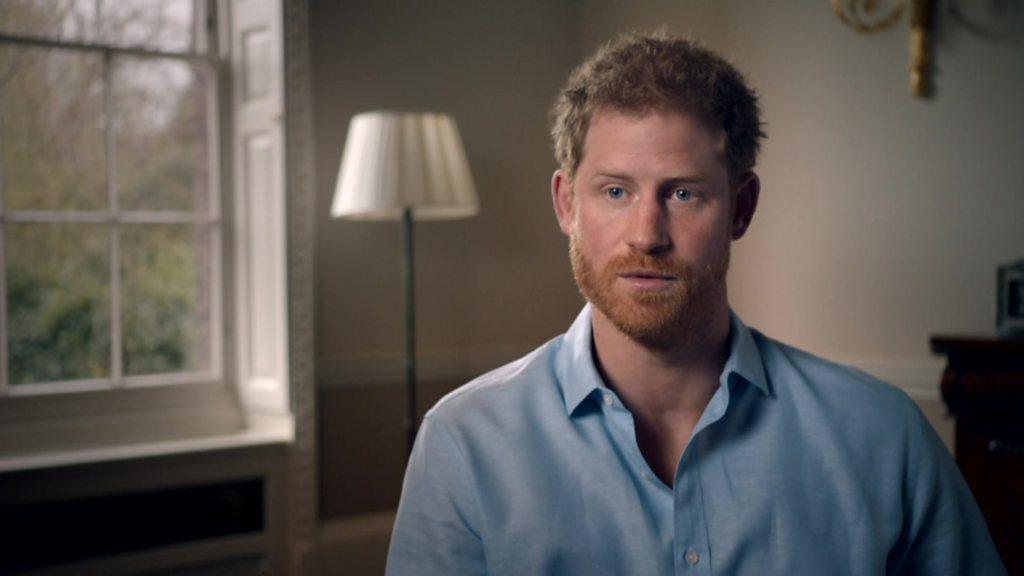How has Princess Diana's death changed the Royal Family?
- Published
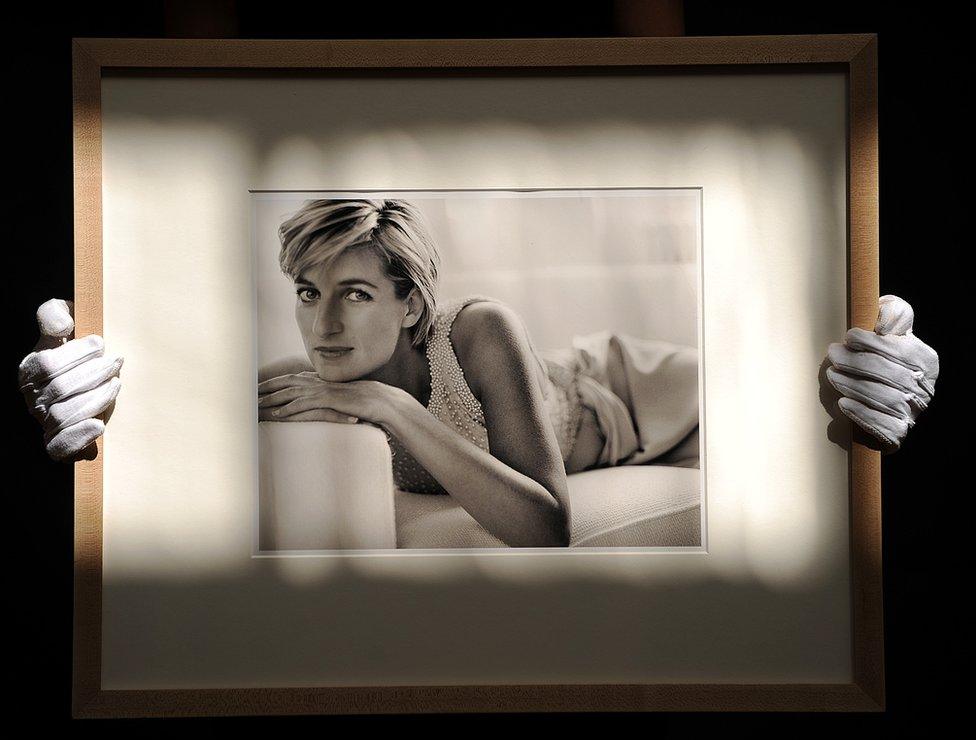
Diana, Princess of Wales was one of the most photographed women in the world
The death of Princess Diana in 1997, and the public's response to it, shook the House of Windsor.
Twenty years on, there's been a coup at the palace. It was bloodless. All the royals remain standing. But the power has shifted.
The departure, earlier this month, of the Queen's dedicated senior official Sir Christopher Geidt has meant her eldest son can exert more control over the monarchy's direction of travel.
The comings and goings of courtiers excite those on the inside and leave outsiders cold.
However, recent changes should cheer Prince Charles. The heir who's waited and waited is more content and less anguished.
He's still driven by a desire to deliver change but the royal prophet in the wilderness on climate change has been embraced by the mainstream.
A prince once derided for talking to plants is praised for trying to save the planet.
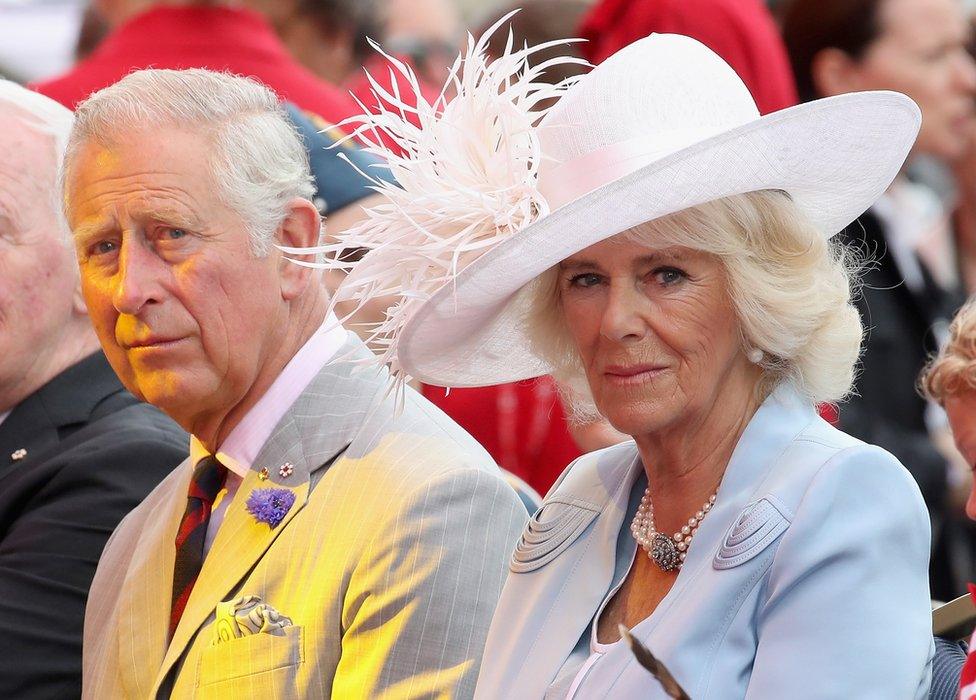
Prince Charles and Camilla, Duchess of Cornwall represented the Queen during Canada's 150th anniversary celebrations
With each year that passes, his mother will do less and he will do more.
There are fewer clouds on his horizon. It's a horizon that was once obscured by the War of the Waleses: his televised admission of adultery, and his leaked comments about tampons.
Lasting influence
And yet, and yet. Whatever accommodation he reached with his first wife in life hasn't survived her death. Diana haunts Charles.
A recent YouGov poll commissioned by the Press Association suggested that the number of people who believe the Prince of Wales has made a positive contribution to the Royal Family has fallen over the past four years, down from 60% to 36%.
This polling took place at a time when it was hard to escape references to Charles's painful past.
Newspapers and television channels have reflected at length on the influence of Diana, Princess of Wales, an influence that stretched from fashion to the British monarchy.
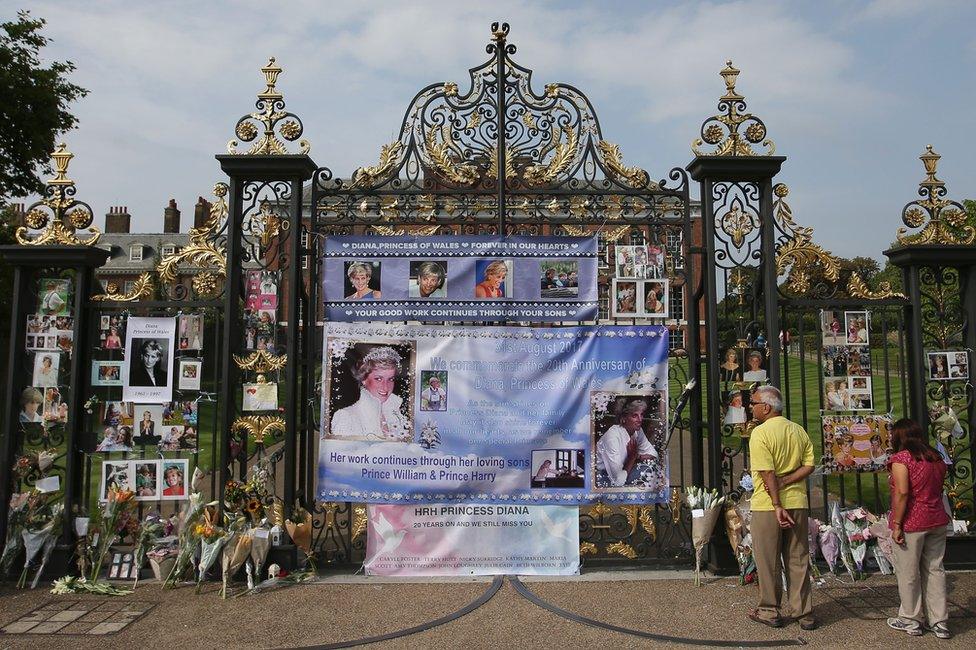
Photographs and floral tributes have been left outside the gates of Kensington Palace ahead of the anniversary of Diana's death
It's been a month of coverage that must have perplexed anyone under the age of 25 and would have confused a visiting Martian.
Charles's many supporters will argue that Diana's adverse impact on his popularity will recede with each passing year. But 20 years on, her influence still registers.
Public backlash
The Queen was the first to feel it, in the days before the funeral in 1997.
The status quo of an empty flagpole at Buckingham Palace and continued residence at her Scottish bolthole of Balmoral couldn't be maintained.
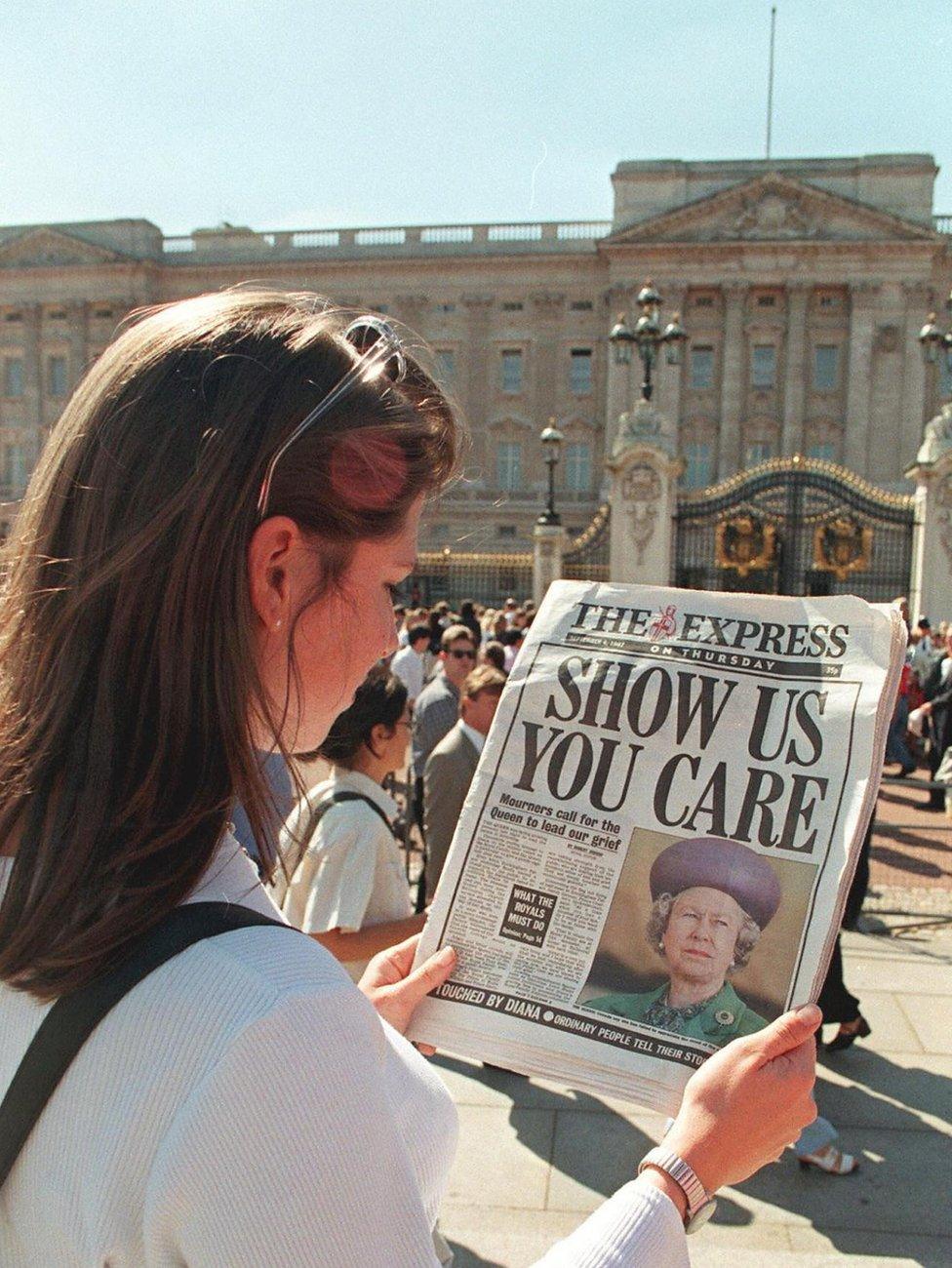
The Queen was criticised for her silence in the days after Diana's death, and for the empty flagpole at Buckingham Palace
The monarch returned early to London. "She relented," was how one of her former officials put it in a BBC documentary. "I was surprised."
The Queen promised in a live televised address to the nation to learn lessons from Diana.
The abiding one for the ancient institution has been to try to avoid ending up on the wrong side of public opinion. The week after the princess's death was the worst of the Queen's reign.
She doesn't want a second such week.
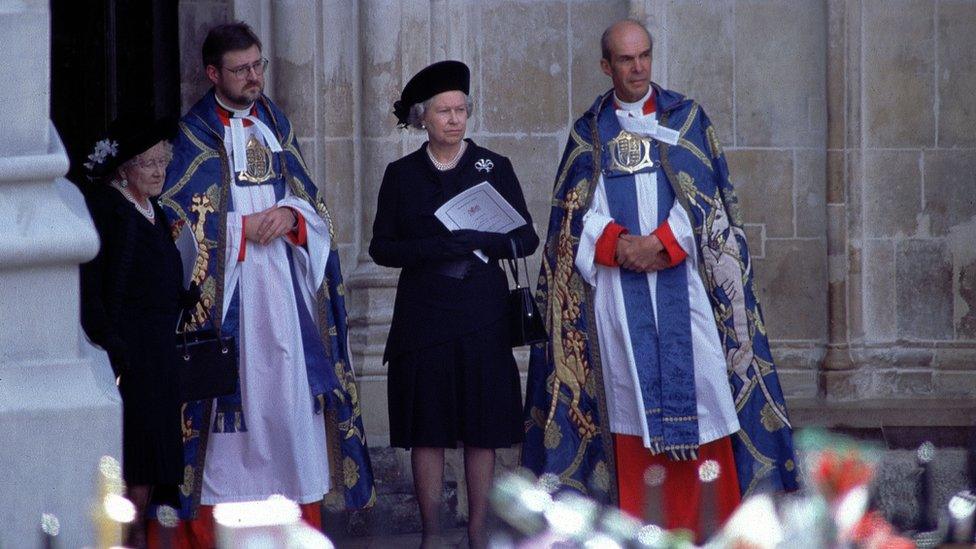
The Queen and Queen Mother at Diana's funeral at Westminster Abbey
The princess's supporters would maintain that such self-preservatory moves have also been accompanied by a desire for Diana's memory to fade and not dominate the agenda.
No royal attended the opening in 2000 of a garden in her memory. For two decades it was accepted that a woman who'd died aged 36 couldn't be captured in stone.
Now her sons are acting. A Diana statue will be erected. The princes who grieved in private as boys are, as adults, trying to shape how she is remembered.
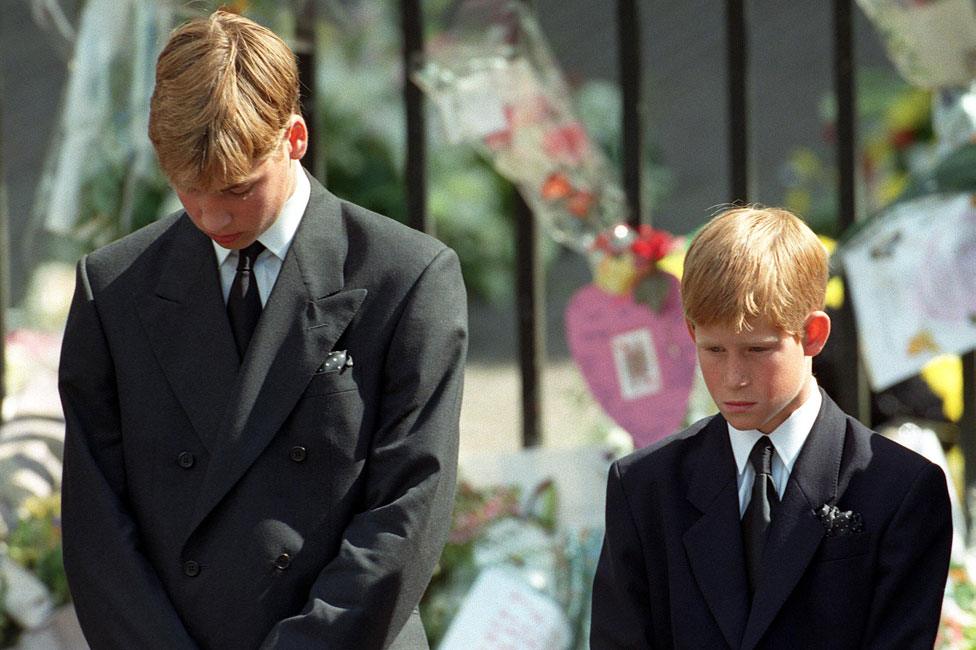
Princes William and Harry, pictured at their mother's funeral, were 15 and 12 when Diana died
William and Harry have talked in interviews about Diana's qualities as a mother and as a campaigner for causes she cherished, causes they have chosen to embrace.
Those seeking signs of Diana's ongoing influence and relevance seize upon how comfortable her sons appear to be in their own skins, and in front of the public.
It's not without cost. The two princes who live in a palace and who ate burgers outside with their mum have struggled to accept they can't lead a "normal life".
Early on, the Queen embraced the fact that her private life had to be lived within the confines of her vast estates. Her grandsons still occasionally kick out against such constraints.
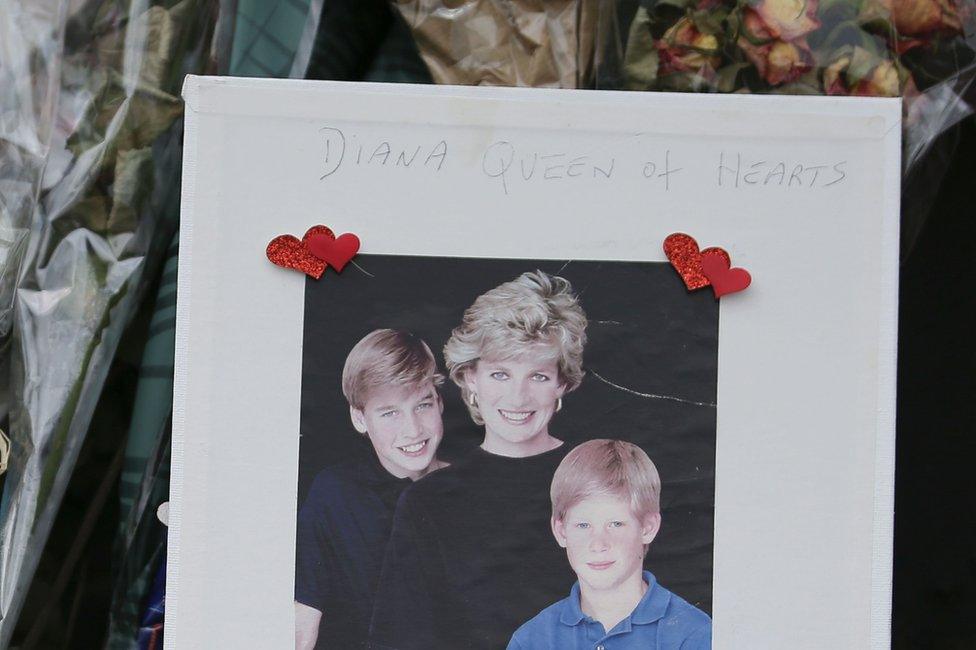
As well as a desire to experience life on the outside, Diana's sons share her ambivalence towards the media. For the princess, the press was something she courted and tried to tame. She failed.
'Extraordinary and irreplaceable'
For the princes, one fact will never fade. Photographers pursued their mother into a Parisian underpass as a drunken chauffeur transported her to an early grave.
At the moment, Diana's influence on the monarchy appears to remain strong. It may well have abated by the time we enter the reign of King Charles, whose wife could yet be crowned Queen Camilla.
The 30th anniversary of her death might not register as intensely as this year's milestone has done.
For now though, she continues to be mourned both by those close to her, and those who never met her: the princess, who - in the words her brother Earl Spencer used in his eulogy - was "the unique, the complex, the extraordinary and irreplaceable Diana".
- Published31 August 2017
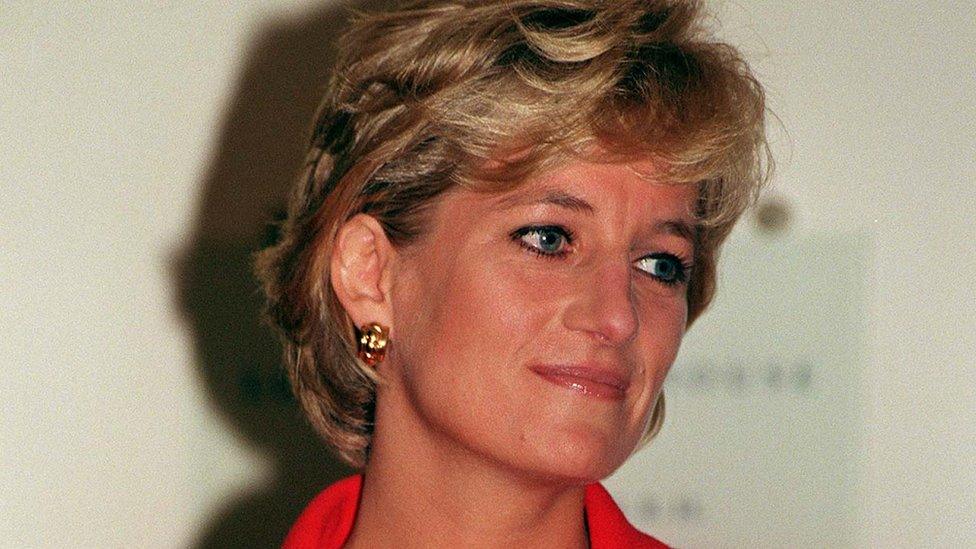
- Published30 August 2017
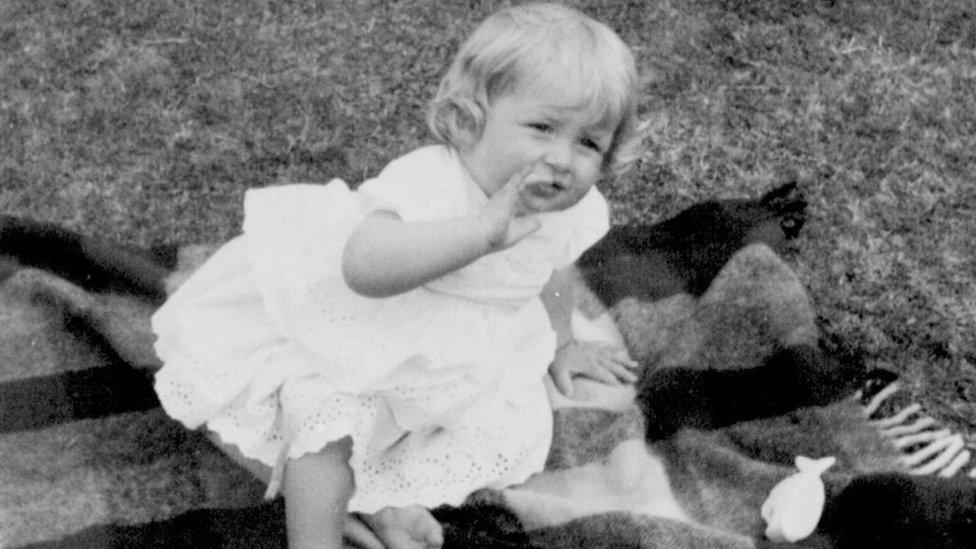
- Published30 August 2017
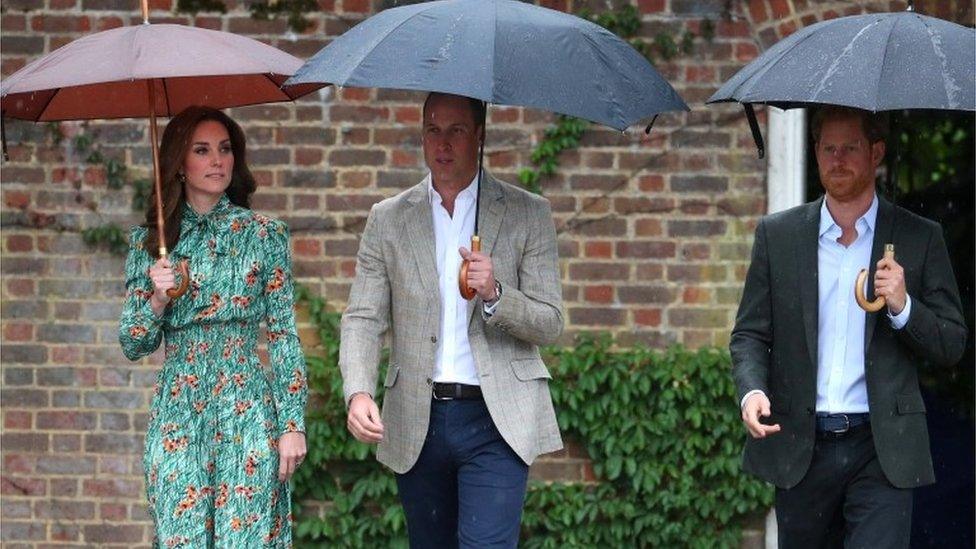
- Published4 September 2017
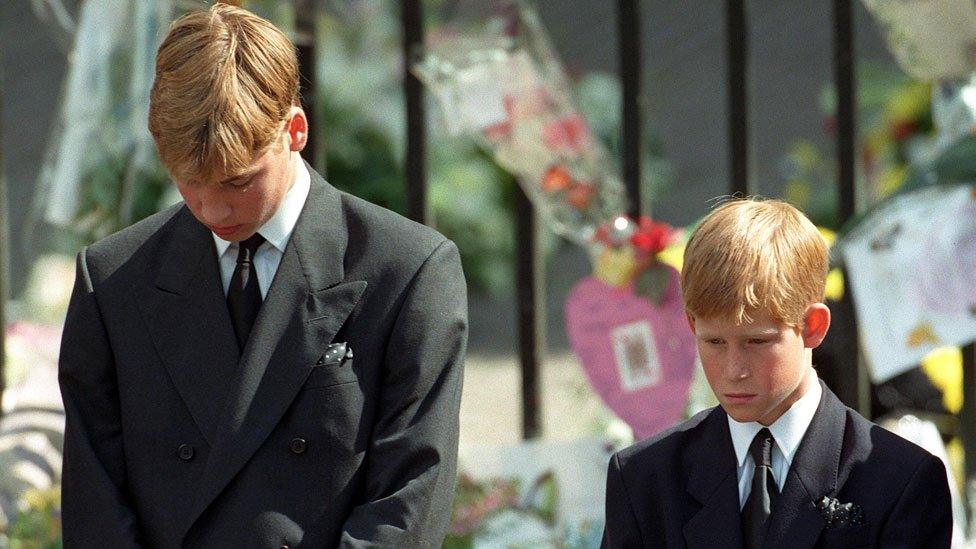
- Published26 August 2017
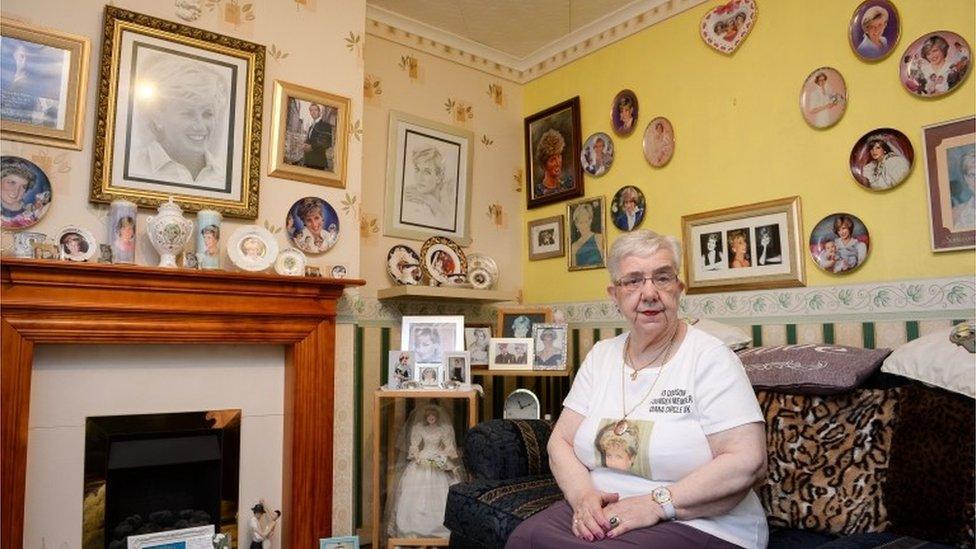
- Published23 August 2017
